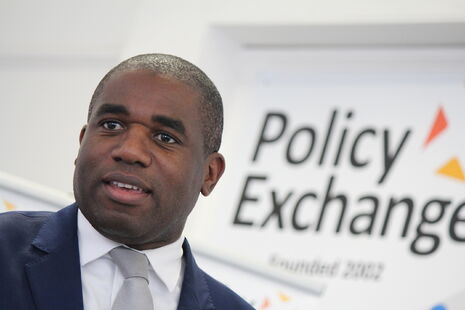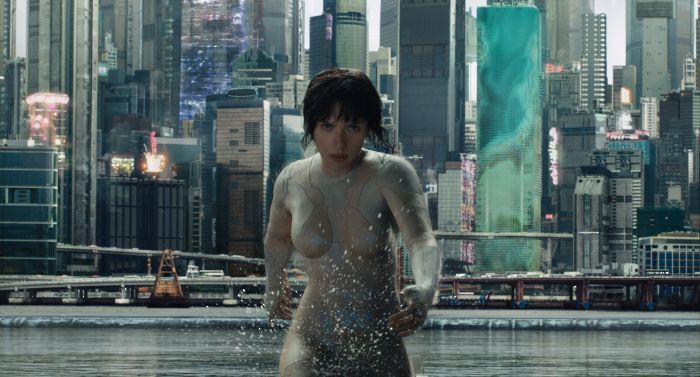You’re not ‘woke’ unless you tackle your own subtle prejudices
In the first instalment of her column on issues that affect students of colour, Galaxy Henry looks at what being ‘woke’ really is

Much like the watered-down version of feminism endorsed by mainstream pop culture, the notion of being ‘woke’ – having an awareness and understanding of matters pertaining to racism and social justice – has become something of a millennial trend. Don’t get me wrong, I appreciate the support of allies who speak out against white privilege. However, not too long ago Nazis paraded through the streets of Charlottesville, a global brand excluded a trans woman of colour from their make-up campaign despite claiming to support diversity, and the president of the CUSU BME campaign – a Cambridge student – fell victim to a vicious social media attack led by Katie Hopkins and her gaggle of racist trolls.
Although recent events have provoked important conversations about issues that matter, with people of all backgrounds uniting to denounce the terrible bigotry that sadly seems to have become more common, if we want to spark real change in Cambridge, to leave a positive legacy behind us, we need to construct a narrative devoid of the underlying racial prejudices which so often taint our speech, our thoughts, and actions.
“Words hold within them the power to influence”
Words hold within them the power to influence, and as Labour MP David Lammy pointed out in his report on racial bias in the British prison system, discrimination and oppression are embedded within the very vocabulary we use to describe that which is other. When the word ‘gang’ is used to discuss crime, instead of depicting a group of interconnected suspects, it often indicates ethnicity, thus adding an unnecessarily racial element to the dialogue.
Although the negative connotations attached to the words we use can often be subtle, this does not detract from their toxicity. It is the ability of these connotations to shape and mould the way we perceive others that is a cause for concern. Whilst one might say innocently enough that a woman in a burqa ‘hides’ behind the cloth she wears as an act of worship, the words themselves are far from innocent. The belief that women hide behind a burqa is marked by misogynistic discourse and a Eurocentric intolerance of non-western culture. Not only does it trap these women in a perverse cloud of fetishised vulnerability, but it implies they are sly and deceptive, not to be trusted.
Therefore, in order to dismantle the linguistic framework responsible for strengthening the foundations of institutionalised racism and discrimination, we must actively reject the discriminatory dogma we internalise while growing up. We ought to become increasingly conscious of the fact that the coded nature of language causes micro-aggressions – unintended or subtle discrimination – which are potent nonetheless.
I personally find it distressing when destructive ideas and images, which are incessantly used to clip the wings of people of colour, begin to seep into and contaminate our own self-conceptions. They are often coping mechanisms, a desperate attempt for people of colour to feel accepted in predominantly white spaces.
In exchange for social acceptance, we are encouraged to disassociate our cultural heritage from our identity as British citizens, to laugh off problematic comments made by our peers, and to blame ourselves when we’re offended by racism and ignorance. We are encouraged not to make our differences too obvious, make our problems even less so, and to criticise those who refuse to follow suit. We’re encouraged to disseminate the whitewashed ideas which threaten to undermine the tireless work of our activists and allies.
These are just a few of the ways in which deep-rooted institutionalised racism manifests itself within us as human beings – turning victims into enablers, and perpetrators into heroes. To meaningfully impact the way in which our community in Cambridge operates, it is critical that we, as students, wake up and acknowledge the virulence of certain ideas and beliefs. We must shake off the myth that issues like cultural appropriation are concocted by ‘Social Justice Warriors’ to rain on our May Week parade.
We all need to work to uproot the intricate systems of oppression which thrive on our inactivity, and reject the selfish tendency to prioritise our own comfort over the discomfort of others. This is why being ‘woke’ means so much more than listening to Childish Gambino, or watching Dear White People on Netflix. It is a continuous process of self-education and self-realisation. It involves unlearning our internalised bias, our internalised passivity, our internalised acceptance of inadequacy and inequality. Most importantly, it largely depends on the condition that when we do speak out, it’s on our own uncensored terms
 News / Judge Business School advisor resigns over Epstein and Andrew links18 February 2026
News / Judge Business School advisor resigns over Epstein and Andrew links18 February 2026 News / Hundreds of Cambridge academics demand vote on fate of vet course20 February 2026
News / Hundreds of Cambridge academics demand vote on fate of vet course20 February 2026 News / Petition demands University reverse decision on vegan menu20 February 2026
News / Petition demands University reverse decision on vegan menu20 February 2026 News / CUCA members attend Reform rally in London20 February 2026
News / CUCA members attend Reform rally in London20 February 2026 News / Gov grants £36m to Cambridge supercomputer17 February 2026
News / Gov grants £36m to Cambridge supercomputer17 February 2026










